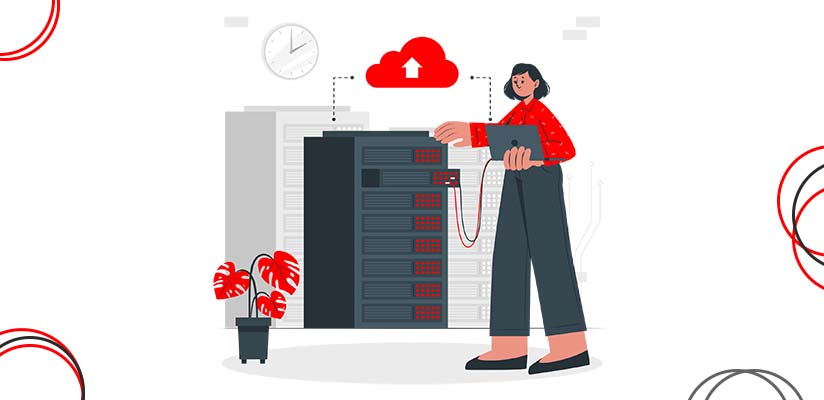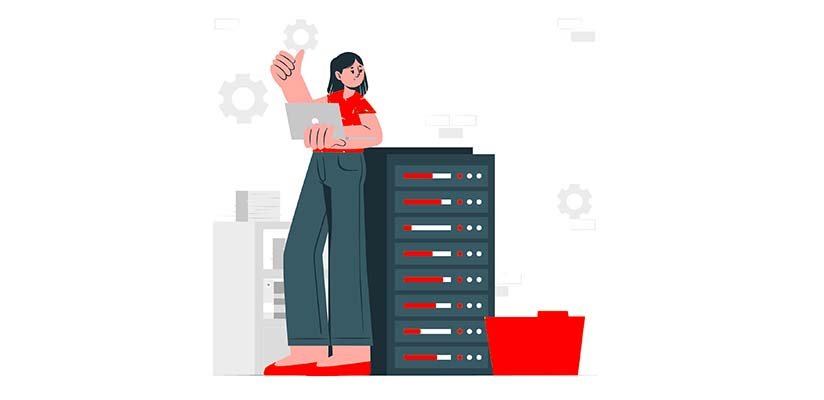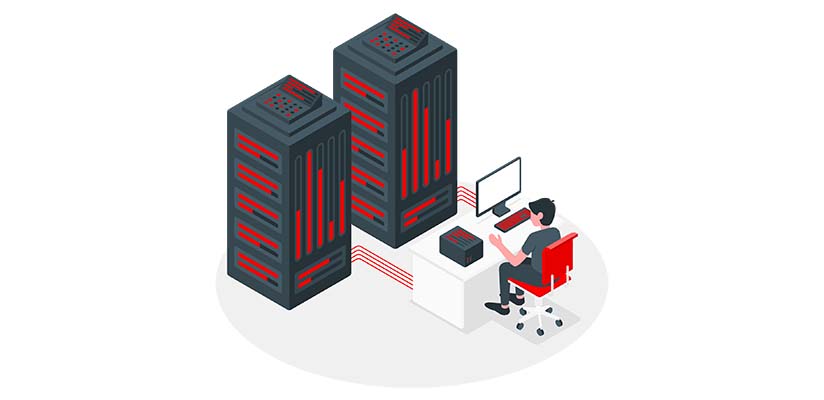
Whenever it comes to online web hosting, the plan you choose is almost as essential as the company you choose. While shared hosting and Virtual Private Servers (VPS) may be cost-effective, there are occasions when you’ll need a lot of power. That’s when a dedicated server with bare metal comes in. But what is a bare metal server?
Bare metal servers may be a suitable match for your project if it requires the greatest performance level, security, and compliance. You’ll receive assured access to 100% of your server’s resources and full control over its settings if you buy a bare metal server.
In this article, we’ll explain the bare metal meaning and why you may need to buy bare metal server. To help you determine whether the bare metal is appropriate for you, we’ll go through its benefits and drawbacks, as well as some important aspects to consider this dedicated server.
What Is a Bare Metal Dedicated Server?
A bare-metal cloud server is a physical computer server devoted to serving just one client. Resources and capabilities are never shared between the two or more tenants using this approach, ensuring that you have complete access to your server’s resources.
Each bare metal servers is a separate physical piece of hardware that can work alone. Virtual servers, on the other hand, may operate on many pieces of shared hardware.
It’s important to remember that real hardware underpins all servers, whether virtualized or bare metal. Even in virtual machines, real hardware exists under the surface; you just don’t have access to it.
Bare Metal Features
The hosting package you choose may make or destroy your company. Let’s have a look at the advantages and disadvantages of these servers to assist you in making this critical choice.
The Benefits of Bare Metal Servers

These servers provide the following benefits:
- Observance of privacy and security regulations: Because it’s simpler to design a dedicated server to satisfy specific requirements, it’s especially popular among banking, medical, governmental, and online stores.
- Reliability: If you intend to handle huge amounts of traffic or data, this will come in handy. Dedicated servers’ data-crunching skills make them ideal for applications involving big data, math, statistics, or visualization. Artificial intelligence and Robotics are examples of this (AI).
- Having access to a significant quantity of computer power: This is necessary for activities that need a lot of resources, such as live streaming or generating animations.
- There is very little delay: Render farms and video encoding activities benefit greatly from bare metal dedicated servers. No technology, however, is without flaws. As a result, it’s a good idea to balance the disadvantages of bare metal servers against such considerations.
The Drawbacks of Dedicated Bare Metal Servers
Before you choose bare metal, think about the following possible drawbacks:
- You’re tethered to a particular piece of equipment: Any faults with your hardware may lead to performance issues. One option is to go with a managed bare metal server, which means your hosting company will take care of the crucial hardware.
- There’s a chance you’ll get a bad return on your investment (ROI): Dedicated servers provide complete access to all of the server’s resources. However, if you aren’t using them to their maximum potential, they may not be worthwhile.
- Managing a bare metal server in-house may require specialized knowledge as well as considerable time and effort: You may always choose a managed plan if you’re worried about the extra burden.
Your website, app, or project’s basis is your server. As a result, it’s critical that it contains all of the resources you’ll need to achieve your company objectives. Your site may begin to slow if your server does not have adequate processing capacity. To make sure you make the best choice possible, thoroughly evaluate all of these benefits and drawbacks against your particular requirements.
Why Choosing Bare Metal

Dedicated servers aren’t suitable for all users. However, certain projects and companies need the unique features and processing power that this solution provides.
Let’s seek out if your company is one of them. Here are four indications of why you should choose a bare metal dedicated server.
1. You want to personalize your server to meet your specific requirements
When opposed to a group of individuals sharing the same physical server, you’ll have full influence over your physical server as a single tenant. This involves gaining access to the system’s hardware.
You have absolute authority over your traffic, memory utilization, and many other essential web hosting elements in a dedicated environment. This degree of control allows you to tailor the server’s performance, security, and dependability to your specific requirements.
Some projects, for example, may be memory-intensive yet need less disk space. Other websites may only need a little amount of RAM but a large amount of disk space. You may optimize the server to give the precise experience you need by going bare metal.
Bare metal may be a suitable match for your company if you’re searching for a lengthy hosting solution. It’s reasonable to expect that your needs will change over time. You can adjust your bare metal server to a broad variety of workloads as your requirements evolve.
2. The Noisy Neighbor Effect Must Be Avoided
Assuming that two servers are fully equal in terms of performance, a bare metal server will outperform its shared counterpart. This is mainly because, as the only tenant, you have complete control over your server’s resources.
Dedicated servers, in particular, protect you against the ‘noisy neighbor’ effect. When you share a server with a client that uses a disproportionate amount of the available resources, this happens. Your neighbor may use so much storage or memory on the server that it momentarily impacts the other tenants.
Your website may slow down or possibly go down in this case. When you’re the sole tenant on a server, the loud neighbor effect doesn’t affect you.
The configuration of a bare metal server may also improve performance. You may optimize your server’s resources to handle your particular workload more effectively since this kind of solution is fully configurable.
A hypervisor is required in a virtual environment because servers need at least one extra layer of software. This is not required on bare metal servers, which means your operating equipment is implemented straight on your server. This usually results in better results.
The inclusion of a hypervisor on a shared server also prohibits consumers from taking advantage of the actual hardware’s architectural advantages. Users using dedicated servers, on the other hand, are in a unique ready to promote much greater use of the actual hardware at their disposal.
This dependability in performance is great news for any company that has to handle high-volume, high-intensity workloads. This covers database and business intelligence applications.
If you need a lot of processing power and minimal latency, such as if you’re hosting high-resolution images or dealing with huge quantities of data, you may want to consider a dedicated server. Render farms and video encoding operations are two additional projects that often use bare metal servers because of their predictable performance.
3. Your website’s security needs to be enhanced.
Your data will be kept along with the same hardware as that of other customers if you choose a shared server. This kind of shared arrangement, as we discussed in the last section, is fundamentally riskier than keeping your data on a separate computer.
You can separate your data, apps, and other resources with a dedicated hosting service. Bare metal servers, including VPS plans, will always offer a greater level of security and protection than shared settings.
Spyware, infections, and other digital dangers may be less vulnerable to your data and resources. In shared settings, malicious code-infected data streams may impact many accounts throughout the system. Data streams infected by the virus will be quarantined by a competent hosting provider. However, the consequences of a diverted resource load may still be felt.
Hackers may potentially discover flaws in the isolation software that shared servers use on a daily basis. Because dedicated servers don’t utilize this kind of software, choosing a dedicated solution eliminates a possible vulnerability right away.
Because of this enhanced protection, dedicated servers are an excellent choice if you need to adhere to strict laws or handle sensitive data. People who need data separation and enhanced security, for example. You may also customize your gear to suit your specific needs for further security.
4. You’ll need unrestricted access to server resources.
When compared to shared settings, resource consumption on bare metal servers is very predictable. If you want to crunch data or operate applications that may encounter surges in demand, bare metal may be the best option.
As previously said, there’s always the possibility that you’ll have terrible neighbors that take a disproportionate amount of the available resources in a shared setting. This may have an impact on the success of your project.
If you don’t have access to the resources you need, your web host may slow down or even go down. When you share a server with many other clients, you may have trouble handling traffic surges. Many projects’ ultimate aim is to attract a large number of visitors, but this may soon turn unpleasant if your server has yet to handle all of the extra traffic.
You won’t have to fight for resources if you choose dedicated hosting. You’ll have unrestricted access to your server’s processing power. If your project experiences a sudden surge in traffic, you’ll be in a better position to take advantage of the opportunity.
Instead of a slow User Experience, visitors should be welcomed with a lightning-fast website with all of your server’s resources at their disposal (UX). As a result, bare metal servers are excellent for providing mission-critical sites, where even a little slowdown may be catastrophic.
Bare Metal Vs VM

As with other cloud technologies, there isn’t always a single best option; it all relies on your requirements. Due to their constant role and position and security needs, a financial firm, for example, would profit from a bare-metal server. A retailer, on the other hand, may be better suited for VM servers to handle changing traffic and keep expenses under control.
Bare Metal as Virtual Server
What is the difference between bare metal vs VPS? Or bare metal vs dedicated server? Well, to answer those questions, we have to look at bare metal as a virtual server. As mentioned above, dedicated servers aren’t suitable for everyone and the same goes with virtual servers. There is a demand for both and you should choose either of them based on the requirements and needs of your business.
Read More: Dedicated Hosting vs. VPS Hosting – Which One Is Better?
How to Manage a Bare Metal Dedicated Server with Ease
A common misconception is that running a bare metal server requires a big staff of IT experts. While that is true for an arrangement, it is not true if you choose a managed hosting solution.
A good managed hosting company will also provide a comprehensive set of extra services. The procedure of operating a dedicated server may be significantly simplified as a result of this.
Conclusion
Some projects require more resources than others, and shared or VPS hosting plans aren’t always enough. If you’re doing a lot of data processing, a bare metal server may be the way to go.
If you’re still on the fence about whether the bare metal is appropriate for you, let’s go through the four reasons we discussed in this article for choosing a dedicated server:
- You may personalize your server to suit your specific requirements.
- It allows you to escape the impact of a loud neighbor.
- Security is enhanced with bare metal servers.
- You will have unrestricted access to all of your server’s resources.
Leave a Reply